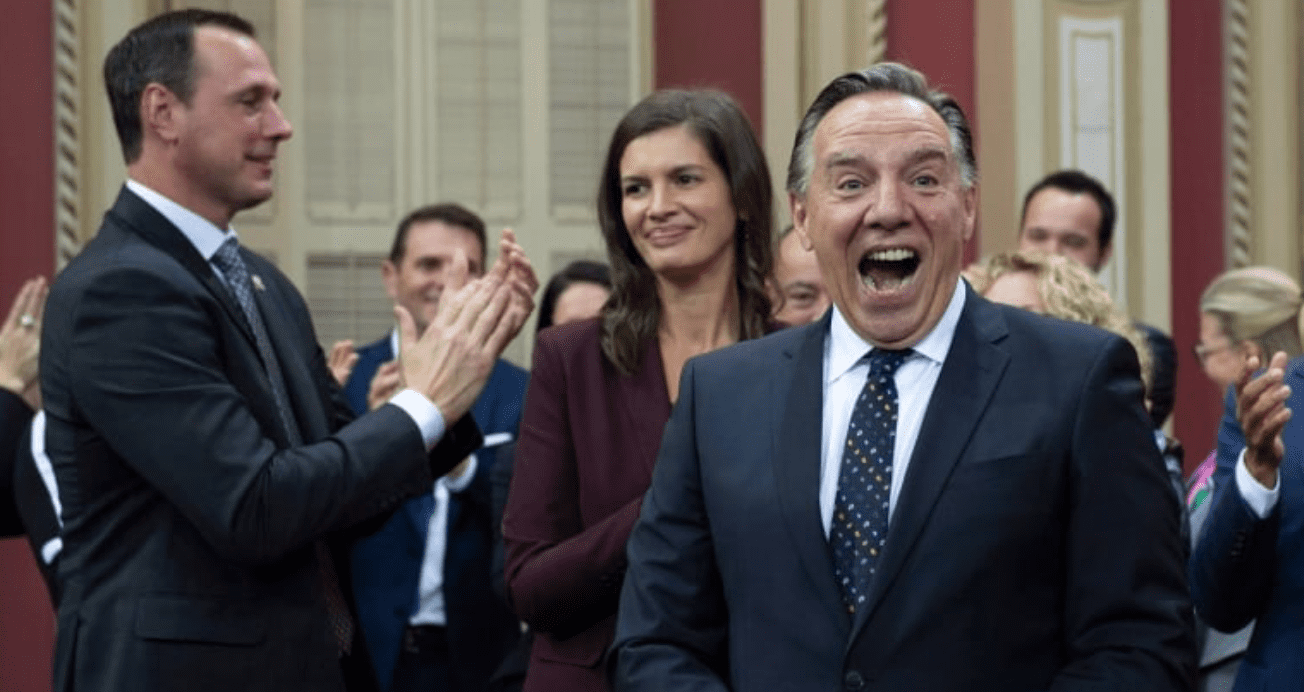This content is restricted to subscribers

The views, opinions and positions expressed by columnists and contributors are the author’s alone. They do not inherently or expressly reflect the views, opinions and/or positions of our publication.

This content is restricted to subscribers
The views, opinions and positions expressed by columnists and contributors are the author’s alone. They do not inherently or expressly reflect the views, opinions and/or positions of our publication.

The word pragmatic will be thrown around a lot in the coming days, as the new premier of Québec, François Legault, begin the job of governing.
Legault and his cabinet were sworn in as the government Thursday, and it's the sort of utilitarian group of folks you'd expect the new premier, an accountant, to put forward. This is not a government of ivory tower theorists, and Legault isn't exactly known for deep thought.
So, we see a series of fairly obvious choices for each of the various ministries.
A former bank executive will be finance minster. A high-end equity manager, minister of the economy. The head of Montréal's public health will be minister of health. A prosecutor will be justice minister. Former elementary school teacher? Education minister. And so on.
Interestingly, his cabinet will have gender parity between men and women — 13 of each. A bit of proof that, if nothing else, nominally conservative parties in Quebec are very different than they are elsewhere in the country.
As far as forming a government, this is what Legault promised. His pitch to Quebecers was that his party was full of professionals who were capable of running the province, despite the CAQ never having held power.
A government of squares is what he was offering, and that's what the province will get.
Take, for example, that one of Legault's early actions once his government gets going will be to raise the legal age for buying cannabis in the province. Right now, it's set at 18 years, the same age is for buying cigarettes and alcohol. But, because getting high is weird and perhaps fun, the new CAQ government wants no part of it. So, 21 years old will be the new legal age.
And in a short speech Thursday after being sworn in, Legault said his priorities would be health care, the economy, and education. Straightforward stuff.
But for all of the new government's apparent boringness and dull straightforwardness, there is also an element of radicalism.
Not the red-flag waving sort, but something radical all the same. Legault is playing the standard bearer in the Québec front of the culture wars. He's promised his government will forbid any public employees from displays of religious devotion.
This includes things like hijabs, which will no longer be permitted to be warn.
To be clear, he didn't run on this. He didn't promise to do this during the campaign. And yet here we are.
It's also got this air of absurd hypocrisy that really gets to the heart of why its so, well, bad. Legault was asked whether the crucifix in the legislature — that sits above the Speaker's chair and was placed there in the 1950s — would stay, Legault said of course it would.
I am not making this next part up, but he said the cross would stay because it wasn't a religious symbol at all. "In our past we had Protestants and Catholics. They built the values we have in Quebec. We have to recognize that and not mix that with religious signs," he told reporters.
Not mix religious signs, with the VERY LARGE RELIGIOUS SIGN in the legislature, you see. And about recognizing the history that started in the 1950s — which I know I've just said, but come on. This is in a building, it should be noted, that was completed in the 1880s.
Anyway, so Legault lives in this weird land of make-believe where a large figure of literal Jesus Christ dead on a cross is not some kind of religious symbol, and is therefore fine to lord over the person who lords over the legislature.
What this belies is that the purpose isn't to keep the state secular, as it's usually played out. But to keep the state non-Muslim.
This plan would almost certainly be unconstitutional. Singling out people for their religious beliefs goes against the Charter. Fortunately for Legault, there's the notwithstanding clause* in there he can use to get around that. And he promised he'd use it right out of the gate. For something he did not promise to do during the election.
And this is the truly radical thing about Legault and his government. For all the usual middle-class, small-business friendly rhetoric, he is putting forward a radical cultural agenda. The plain trampling of rights is nothing that seems to concern him.
Don't let his squareness fool you, François Legault is, deep down, a radical.
***
* For what it's worth, in the first several years after it came into force every single bill passed by the Québec legislature included the notwithstanding clause. To a Bill, it was entirely unnecessary, and the clause's use served no purpose, other than to raise thumb to the nose in the direction of Ottawa.
Photo Credit: CBC News
The views, opinions and positions expressed by columnists and contributors are the author’s alone. They do not inherently or expressly reflect the views, opinions and/or positions of our publication.